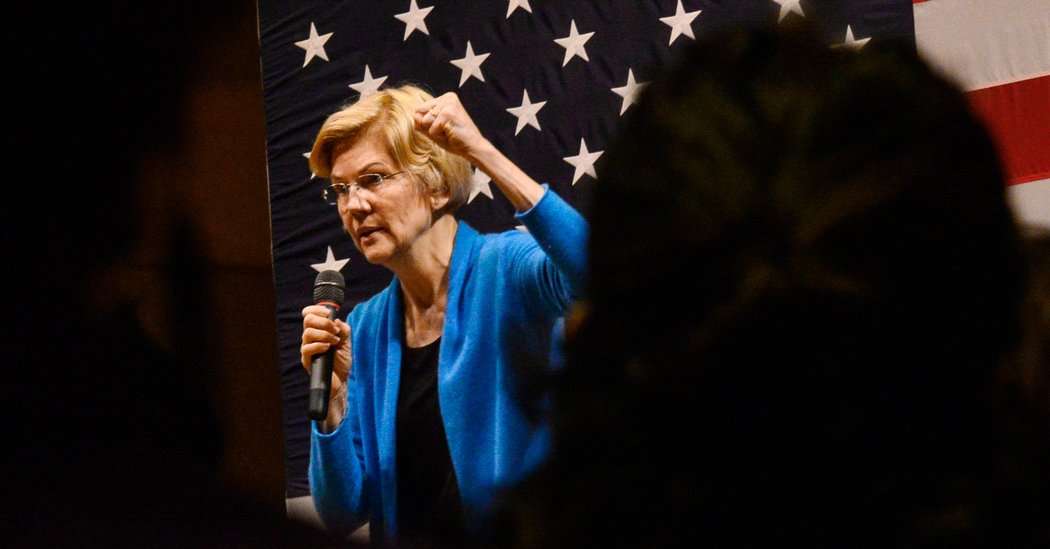As student loan debt continues to rise, the issue has forced itself into the Democratic presidential primary, with several candidates promising to expand access to federal grants or eliminate tuition at public or community colleges. Senator Bernie Sanders of Vermont was credited with thrusting the issue of free college onto the national stage during his 2016 presidential run, but Ms. Warren has pushed the idea further, calling for the government to cancel debt in addition to expanding college affordability.
In statements provided by the campaign Monday, scholars and education advocates said Ms. Warren’s policy would improve the financial futures of a debt-burdened generation of young people, and help reduce the racial wealth gap between white people and racial minorities, who have been disproportionately burdened by student loans.
“Going to college shouldn’t result in a lifetime sentence of student debt, but that is exactly what is happening and it’s only getting worse,” said Randi Weingarten, president of the American Federation of Teachers, the powerful union whose endorsement is often essential for Democrats. “Senator Warren’s plan would release Americans from their debt sentence so they can live their lives, care for their families and have a fair shot at the American dream.”
Ms. Warren’s policy would also prohibit colleges from considering citizenship status and criminal history in admission decisions, cut off federal money from for-profit colleges, and require an “annual equity audit” for public colleges that would identify “shortfalls in enrollment and completion rates for lower-income students and students of color.”
The idea has been dismissed by some more moderate candidates seeking the Democratic nomination for president, such as Senator Amy Klobuchar of Minnesota and Mayor Pete Buttigieg of South Bend, Ind.
“Americans who have a college degree earn more than Americans who don’t,” Mr. Buttigieg said while addressing college students in Boston. “As a progressive, I have a hard time getting my head around the idea of a majority who earn less because they didn’t go to college subsidizing a minority who earn more because they did.”
Education experts from conservative and libertarian think tanks seemed to echo that idea in criticizing Ms. Warren’s proposal.

kob66 on April 22nd, 2019 at 15:02 UTC »
Merits of this proposal aside, talk about a behavioral economics nightmare. You have the former students who paid or have nearly paid off their loans. They have put off home purchases, 401K investments, and sacrificed greatly. They're going to want a retroactive tax break. Students considering college now have an incentive to take multiple gap years to see if something like this can actually happen. And if Warren is actually elected, what type of decisions might students paying down their debt actually make?
externality on April 22nd, 2019 at 13:27 UTC »
When you "cancel debt", whose money is being disappeared?
basscorruption on April 22nd, 2019 at 13:22 UTC »
Also,
http://www.levyinstitute.org/publications/the-macroeconomic-effects-of-student-debt-cancellation
http://www.levyinstitute.org/pubs/rpr_2_6.pdf